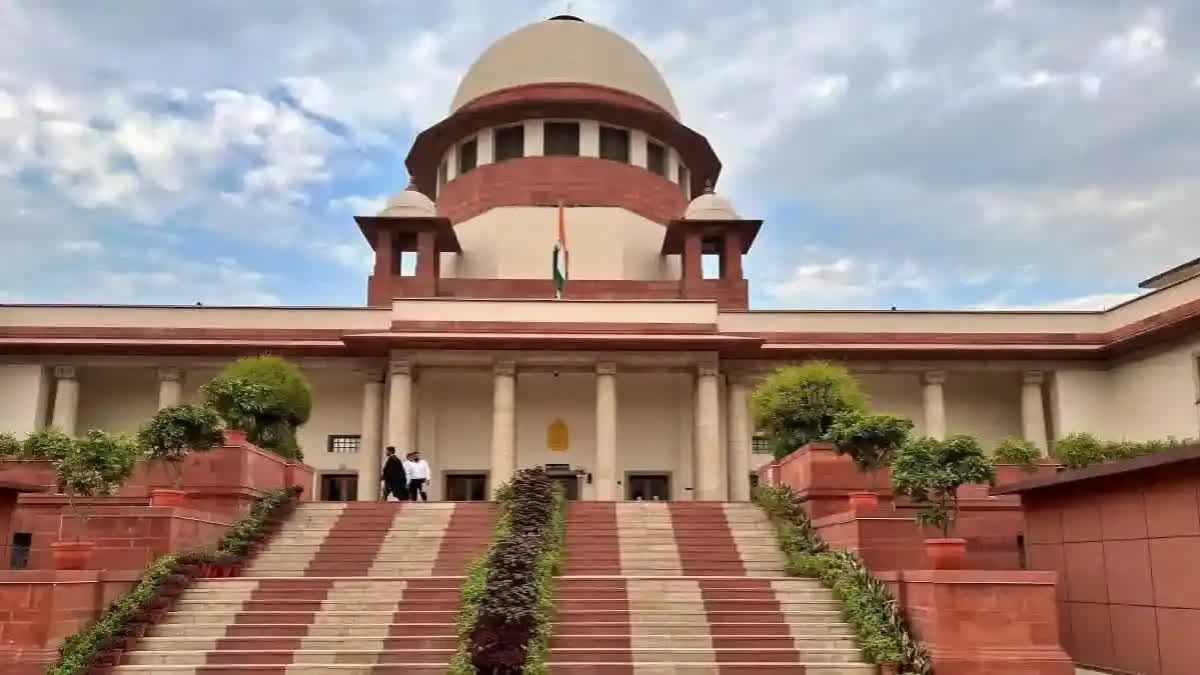New Delhi: The Supreme Court has said that where an employer is unable to provide family accommodation within the township to the enrolled employee, the latter will be entitled to house rent allowance (HRA), while upholding a Delhi High Court judgment which held that CISF personnel are entitled for HRA as provided to other paramilitary forces.
A bench comprising Justices Hrishikesh Roy and Prashant Kumar Mishra said that according to the high court, if Rule 61 of the Central Industrial Security Forces Rules is interpreted in the manner suggested by Union of India, it will be discriminatory and will fall foul of the principles of Article 14 of the Constitution. “In fact, no rationale nexus with the object relating to grant of HRA, for discriminatory treatment was found by the court. Consequently, writ of mandamus was issued directing the employer to pay the HRA in lieu of family accommodation from the date the petitioner became entitled to claim such family accommodation”, said the bench, in its order on February 8.
“The Rule 61 of the CISF Rules was accordingly read down to imply that such entitlement will be within the parameters of such rules. In other words, where the employer was unable to provide family accommodation within the township to the enrolled personnel, they will be entitled to HRA. If the dues are not paid within three months, they are to carry interest @8%”, added the bench.
The bench noted that this judgment of the high court in Jaspal Singh (2006) came to be challenged by the Union of India and the civil appeal was dismissed by the apex court on February 20, 2009. The apex court, while dismissing the appeal, took note of the office memorandum dated February 16, 2009, produced by the then additional solicitor general. The apex court said the judgment of the high court challenged by the Union of India is a follow-up of the judgment in Jaspal Singh Mann.
“Having considered the basis for the interpretation given in Jaspal Singh Mann and upon consideration of the rival submissions of the learned counsel for the parties, we see no reason to disturb the view taken in favour of the respondents, by the High Court. The appeals are, accordingly dismissed”, said the apex court.
The apex court directed the Union of India and others to amount entitled towards HRA, should be disbursed within three months. “If it is not paid within three months, the payable amount will carry interest @8%, as was ordered by the High Court. The interest will be calculated from the date of judgment passed by the Division Bench of the High Court in favour of the respondents”, said the apex court.
The apex court's judgment came on an appeal filed by Union of India challenging the judgments of the Delhi High Court, which held that all CISF personnel are entitled to HRA if they are not provided accommodation. The lead appeal by Centre was filed against the high court judgment in Paramasivan M v. Union of India, which relied on an earlier judgment of the high court.
The Centre had argued that the CISF personnel was not amongst the top 45% in the seniority list. The high court refused to accept Centre’s contention that the HRA was only provided to 45% married and 55% unmarried enrolled members.
Read More



